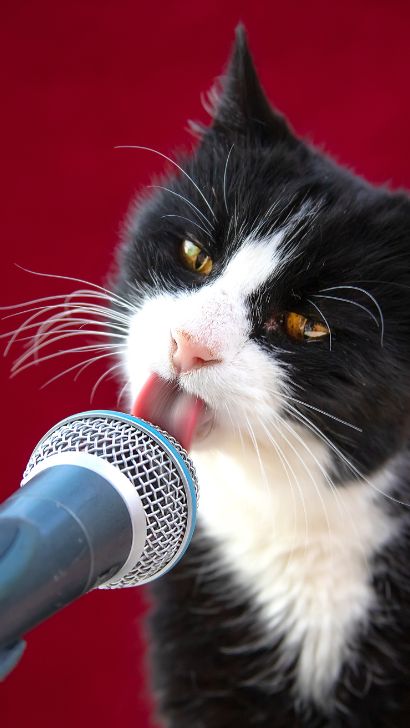Ever wondered why your cat comes running to you when you sing? It’s a common phenomenon that many pet owners have observed. Your feline friend may be drawn to you like a magnet every time you belt out a tune. But why is that? Let’s explore the fascinating world of cats and their reactions to our musical endeavors.
The Curiosity of Cats
One possible reason why your cat comes to you when you sing is simple curiosity. Cats are naturally curious creatures, and any new or unusual sound can capture their attention. When you start singing, your cat might be trying to figure out what’s going on. So the next time you find your kitty running towards you as you sing, it might just be their way of investigating the source of the sound.
The Frequencies and Tones of Your Voice
Another reason why your cat might be drawn to your singing is the unique frequencies and tones in your voice. Cats have a broad hearing range, which means they can pick up on sounds that are inaudible to the human ear. When you sing, especially if you hit a high-pitched note, it might resonate within the frequency that cats find intriguing. Additionally, your cat may associate your singing with positive experiences, like being petted or fed. So it’s possible that they come to you because they enjoy the soothing or pleasant sounds of your singing.
The Effect of Music on Cats
It’s also worth noting that certain types of music can have a calming effect on cats. Just like humans, cats can find comfort in soothing melodies or rhythmic beats. So when you sing or play music, your cat might be responding to the relaxing or enjoyable nature of the sounds. Keep in mind that every cat is unique, so their preferences for specific tunes or genres may vary.
How to Sing to Your Cat without Startling Them
If you want to sing to your cat and create a positive experience, here are a few tips to consider:
- Start softly: Begin with a gentle hum or a soft lullaby to gauge your cat’s reaction.
- Observe their body language: Look for signs of relaxation or distress. If your cat seems calm, you can continue.
- Avoid sudden high notes: Sudden changes in pitch can be startling for cats.
- Incorporate familiar tunes: Songs or rhythms that your cat has heard before might be more soothing.
- End on a positive note: Conclude your singing session with some treats or petting to associate the experience with positive feelings.
Remember, the goal is to make singing a fun and bonding activity for your cat, so be attentive to their reactions and adjust your approach accordingly.
Frequently Asked Questions
Q: Why does my cat meow back when I sing?
A: Your cat might be trying to communicate with you or join in the fun. Cats are quite vocal animals and often use their sounds to interact with their owners and other cats.
Q: Can certain songs or genres be more appealing to cats?
A: Some studies suggest that cats enjoy music specifically composed for them, taking into account their hearing range and preferences. However, individual reactions can vary, so it’s essential to observe your cat’s response to different genres.
Q: Is it harmful to play loud music around cats?
A: Given their sensitive hearing, it’s best to avoid playing very loud music around cats. High volumes can be distressing or even harmful to their ears. Always ensure that the music or singing is at a comfortable volume for your feline friend.
Conclusion
Singing to your cat can be a delightful and bonding experience. Whether it’s the unique frequencies in your voice or the soothing nature of music, cats are often drawn to our musical endeavors. However, it’s important to be attentive to your cat’s reactions and adjust your approach accordingly. Every cat is unique, and their preferences may vary. So the next time you find yourself serenading your feline friend, pay attention to their response and create a musical experience that both you and your cat can enjoy.
For more insights into the fascinating world of cats and their musical tastes, visit Pawsoha.
